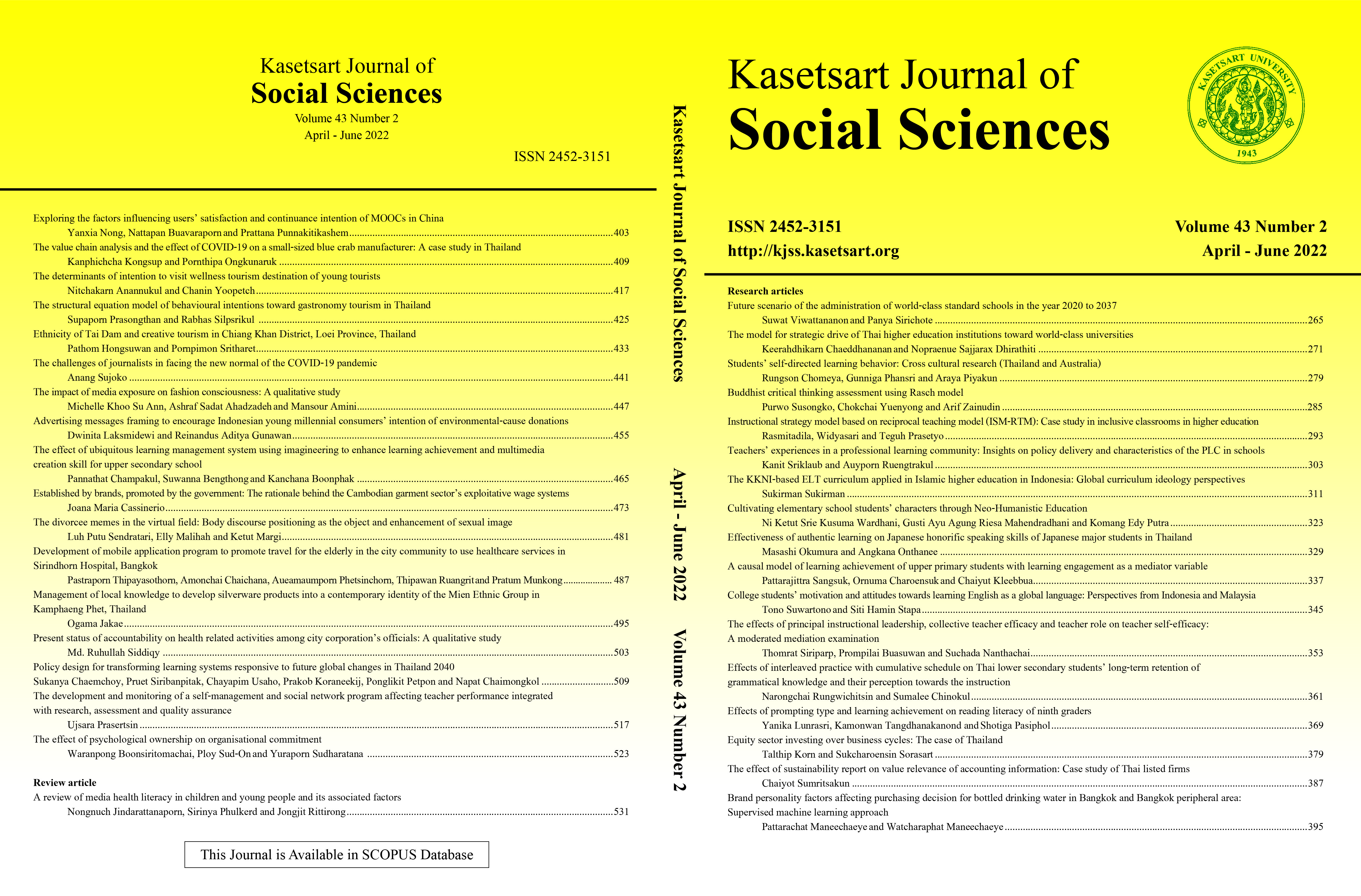Effects of prompting type and learning achievement on reading literacy of ninth graders
Keywords:
computer-based assessment, computerized dynamic assessment, dynamic assessment, prompting, reading literacyAbstract
This paper sought to explore the effects of different prompting types of computer-based assessment on reading literacy of ninth graders and to examine interaction effect between different promptings of computer-based assessment and learning achievement on reading literacy. This research developed computer-based assessment called computerized dynamic assessment (C-DA) that integrated promptings with assessment to support reading literacy. A quasi-experimental design was adopted. 541 ninth graders from 11 secondary schools participated in this study and each individual was randomly assigned into instructional-based prompt (n = 148), error-explanation prompt (n = 139), mixed prompt (n = 131), and verification prompt or control group (n = 123). The results revealed that: (1) there was a statistically significant difference in reading literacy gain score among the prompting groups. Control group scored significantly lower when compared with students in experimental groups; and (2) there was no significant interaction between the two factors, prompting conditions and levels of learning achievement, on reading literacy. The analysis of main effects showed that levels of learning achievement had no effect on reading literacy gain score, whereas promptings of computer-based assessment had a significant impact on students’ gain score. Prompting-based groups also received the higher scores when compared to the control condition. As a result, this study provides empirical evidence for educators to make use of the assessment as an effective tool for assessing reading literacy of ninth graderswith a wide range of learning achievement in classroom.
Downloads
Published
How to Cite
Issue
Section
License

This work is licensed under a Creative Commons Attribution-NonCommercial-NoDerivatives 4.0 International License.
This is an open access article under the CC BY-NC-ND license http://creativecommons.org/licenses/by-nc-nd/4.0/










